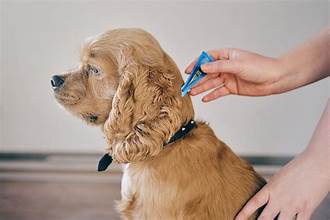As a responsible pet owner, you want to always provide the best possible nutrition for your furry friend. However, with so much misinformation circulating, it can be challenging to decipher fact from fiction regarding dog food. Let’s debunk some common nutritional myths and explore the truth behind them.
Myth 1: Grain-Free Diets are Always Better
Fact: While grain-free diets have gained popularity, they aren’t necessarily superior to diets containing grains. Dogs are omnivores and can digest grains well. The key is to choose a high-quality dog food with a balanced blend of protein, carbohydrates, and fats, regardless of whether it contains grains.

Myth 2: More Protein is Always Better
Fact: While protein is essential for muscle growth and repair, excessive protein can strain your dog’s kidneys. The ideal protein content varies depending on your dog’s age, breed, and activity level. Remember to consult your veterinarian to give the appropriate protein level for your dog’s needs.
Myth 3: Raw Diets are the Healthiest
Fact: Raw diets can pose health risks to dogs and humans, including bacterial infections and parasite infestations. While some dogs may thrive on raw diets, it’s crucial to consult a veterinarian experienced in raw feeding to ensure proper preparation and handling.
Myth 4: All Dog Foods Are Created Equal
Fact: The quality of ingredients and manufacturing processes vary widely among dog food brands. Opt for dog foods made with high-quality, easily digestible ingredients like real meat, whole grains, and healthy fats. Avoid foods with excessive fillers, artificial additives, and by-product meals.

Myth 5: Human Food is a Great Treat
Fact: While occasional treats of human food may be harmless, it’s important to avoid feeding your dog foods that are toxic to them, such as chocolate, grapes, and onions. Stick to dog-specific treats and avoid overfeeding, which can lead to obesity and other health problems.
Tips for Choosing a Healthy Dog Food
- Read the label carefully: Look for high-quality protein sources, whole grains, and healthy fats. Avoid foods with excessive fillers and artificial additives.
- Consult your veterinarian. They can recommend the best food for your dog based on its age, breed, and health conditions.
- Consider your dog’s activity level: More active dogs may require a higher-calorie diet.
- Monitor your dog’s weight and body condition: Adjust their food intake to maintain a healthy weight.
- Provide fresh water: Ensure your dog always has access to clean water.
Understanding these common nutritional myths and making informed choices can help your dog live a long and healthy life.




